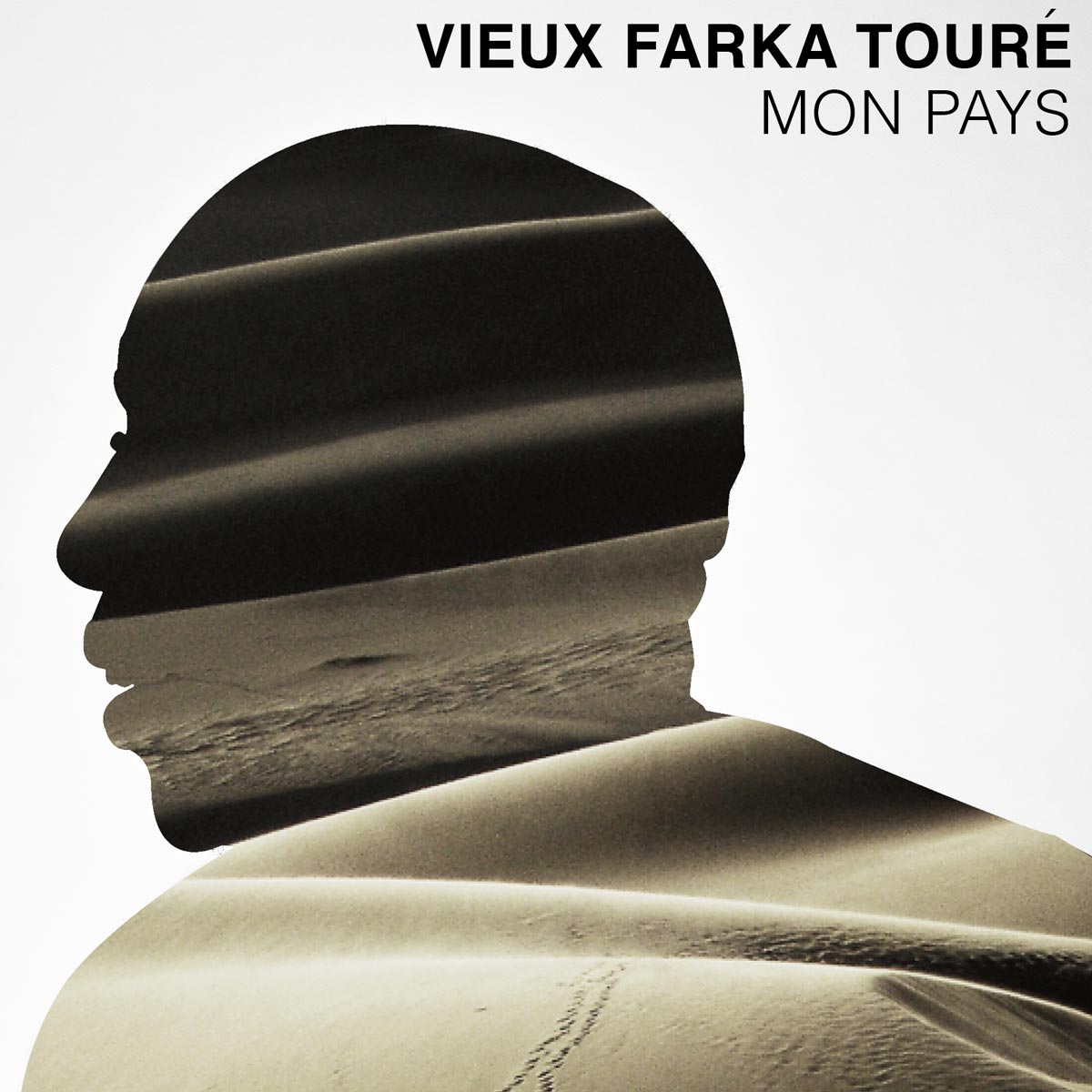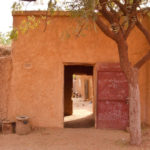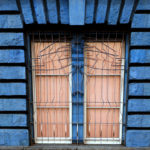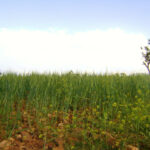
When Islamic militants imposed sharia law across Northern Mali in April 2012, musicians responded with disbelief to the secular music ban. As the violence surged, most people moved to safety in Bamako until they could return home after French and Malian forces chased out the terrorists. For a country with such a rich musical legacy, the threat of music disappearing was unspeakable. This weighed heavily on Vieux Farka Touré as he recorded his latest album in Bamako. “I wanted to pay homage to our musical heritage,” notes Touré who declares his love and hope for Mali throughout Mon Pays (My Country).
While the record was planned before the conflict in Northern Mali began, it has taken on a different life since the invasions took place. The acoustic approach was inspired by Israeli pianist and vocalist Idan Raichel, who Touré has collaborated with a number of times, most recently on The Tel-Aviv Session. Perhaps this explains the laid-back atmosphere of Mon Pays. While the subject matter of most of the songs is intense, the musical tone is relaxed and reflective. “Yer Gando” discusses the ban on music and the rise of slavery as Touré warns of foreign extremists stealing Mali for themselves. “Kele Magni” states that his nation belongs to every citizen, not a select group. He honors his father on Ali Farka Touré’s “Safare” and gives tribute to Diack So on the reimagined folk song “Diack So.” So was a singer, guitarist and family friend who ruined himself with alcohol. Touré draws comparisons to So’s self-destruction with music in Northern Mali being silenced by the Islamists.
The lyrical content of Mon Pays is certain to draw a lot of attention, but the instrumental side of the music is also impressive. Touré has grown into a mature musician who successfully forged his own destiny after his father initially forbid him from playing music – the elder Touré finally gave his blessing before his death. The generational relationship between Vieux Farka Touré and Sidiki Diabaté (Toumani Diabaté’s son), is perhaps the most fascinating aspect of this release. Ali Farka Touré and Toumani Diabaté recorded two Grammy award winning records together, In the Heart of the Moon and Ali and Toumani. On Mon Pays the younger Diabaté’s kora playing, especially on “Doni Doni,” “Future” and “Peace,” is enthralling. His innate connection with Touré is understated yet powerful, in much the same way it was between their fathers.
The only thing letting this album down is the production. Everything sounds a bit too neat and tidy. It wouldn’t have hurt to add a bit more grit into the overall sound. Pumping up the percussion, especially the calabash, would have given the record some more force. While overdubs are a fact of life, all of Tim Keiper’s percussion was recorded in New York City and mixed in later. Perhaps that is why some aspects of the record sound a bit uneven. Even still, Mon Pays is a fine album from an artist who is making sure music stays diverse and alive in Mali.
Originally published in RootsWorld Magazine.




Be First to Comment